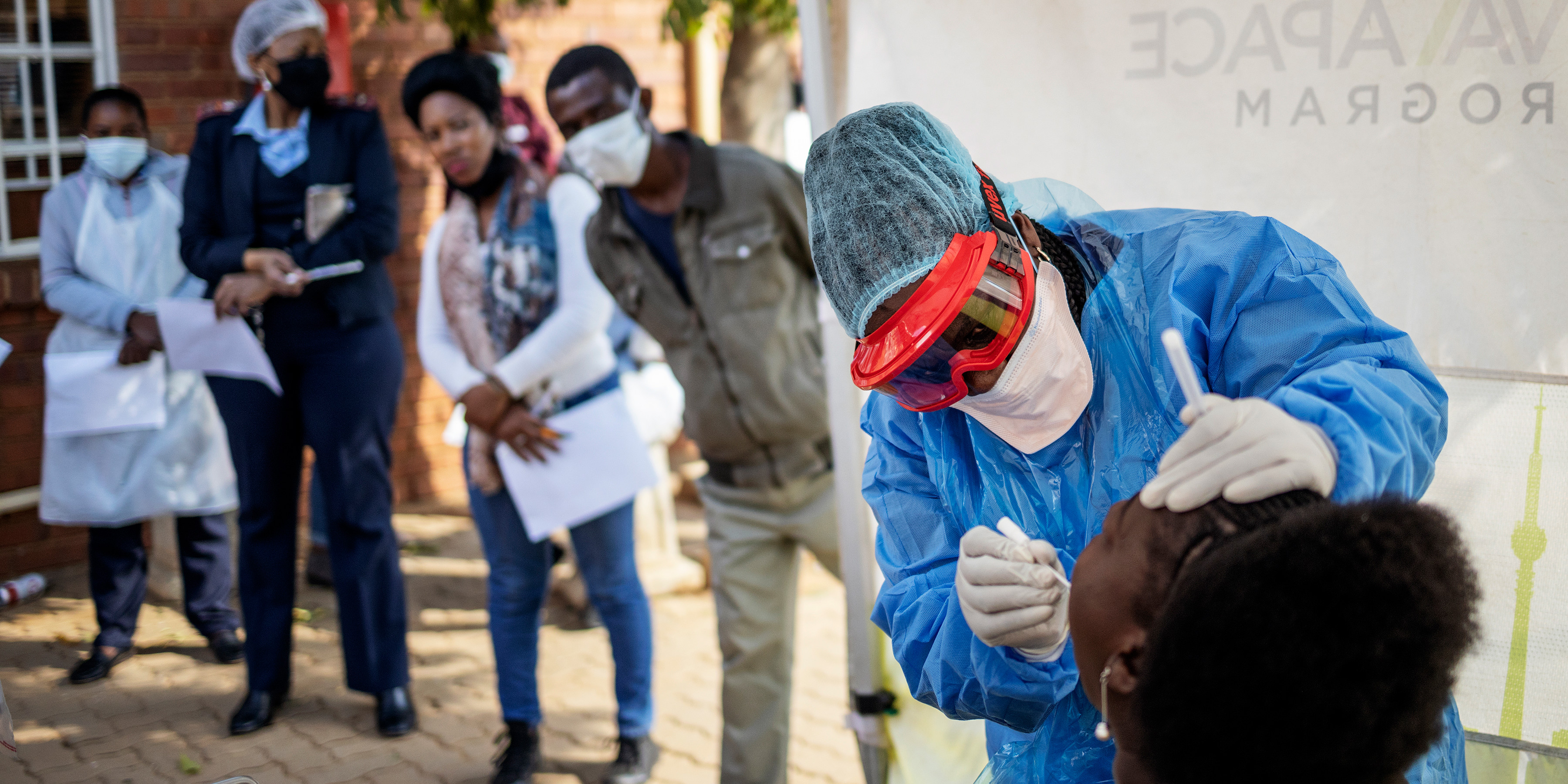INTERVIEW
If Europe and the United States are today the areas most affected by Covid-19, the African continent has only 2,702 deaths and 81,294 cases out of 1.2 billion inhabitants. How to explain this resistance to the Covid-19? Isabelle Defourny, director of operations MSF France, gave some answers on Sunday on Europe 1.
>> LIVE - Coronavirus: follow the evolution of the situation Sunday May 17
"The epidemic has been taken seriously"
For Isabelle Defourny, this low penetration of the virus in African countries is explained first of all by early health measures. "The epidemic was taken seriously very quickly by African leaders and many measures to fight the epidemic were put in place very early," she said. She cites in particular the limitation of large gatherings, "reduced travel", "home confinement" in certain countries, associated with the "wearing of a mask", which is very common in Africa.
Some African countries have also remembered the trauma of the Ebola virus. "Measures have been put in place in countries where there is a habit and expertise in responding to epidemics and where health systems know how to adapt to an epidemic," says Isabelle Defourny. The population also knows how to react to such a health crisis. Africans "know that their health systems are not extremely strong and that to protect themselves, they must count on them," says Isabelle Defourny.
CORONAVIRUS ESSENTIALS
> Coronavirus: the French Academy has decided, it will now be necessary to say “the” Covid-19
> Coronavirus: is the second wave inevitable?
> Gatherings, trips, sport: what remains prohibited despite the deconfinement
> Deconfinement: what you need to know about returning to work
> Deconfinement: what hygiene for self-service bikes, scooters and scooters?
Another explanation: the structure of the African population. This presents few risk factors in comparison with the American and European populations. "It seems that the predominant factors are age, gender [men are more affected] and certain risk factors such as diabetes," explains the doctor. However, the African population is young: 60% of Africans are under the age of 25.
A growing epidemic
HIV, which affects 8 million South Africans, for example, could have been one of the aggravating factors of the disease. But according to Isabelle Defourny, it is not. "At the beginning of the epidemic we feared that populations, for example affected by HIV, would have very poor control of the virus. However, that is not what we are seeing at all," she acknowledges. She believes that it is still "too early" to know if mortality increases with HIV infection.
>> READ ALSO - Bruno Parmentier: "There may be more victims of hunger than coronavirus"
If African countries are experiencing a slow increase in cases of coronavirus, Isabelle Defourny believes that the continent is not out of the woods yet. "It is important to keep in mind that we see few severe cases in African countries but the epidemic continues to progress in many countries," she said. According to her, "the epidemic is still in the ascending phase". But Isabelle Defourny does not believe in a catastrophic scenario. "We don't think it will bring an absolutely massive wave of mortality but it is likely that many more people will die" from the Covid-19.

